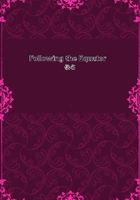
第79章
Thus advantageously was the new king situated. Will it be believed that the first thing he did was to destroy his Established Church, root and branch? He did indeed do that. To state the case figuratively, he was a prosperous sailor who burnt his ship and took to a raft. This Church was a horrid thing. It heavily oppressed the people; it kept them always trembling in the gloom of mysterious threatenings; it slaughtered them in sacrifice before its grotesque idols of wood and stone; it cowed them, it terrorized them, it made them slaves to its priests, and through the priests to the king. It was the best friend a king could have, and the most dependable. To a professional reformer who should annihilate so frightful and so devastating a power as this Church, reverence and praise would be due; but to a king who should do it, could properly be due nothing but reproach; reproach softened by sorrow; sorrow for his unfitness for his position.
He destroyed his Established Church, and his kingdom is a republic today, in consequence of that act.
When he destroyed the Church and burned the idols he did a mighty thing for civilization and for his people's weal--but it was not "business."It was unkingly, it was inartistic. It made trouble for his line. The American missionaries arrived while the burned idols were still smoking.
They found the nation without a religion, and they repaired the defect.
They offered their own religion and it was gladly received. But it was no support to arbitrary kingship, and so the kingly power began to weaken from that day. Forty-seven years later, when I was in the islands, Kainehameha V. was trying to repair Liholiho's blunder, and not succeeding. He had set up an Established Church and made himself the head of it. But it was only a pinchbeck thing, an imitation, a bauble, an empty show. It had no power, no value for a king. It could not harry or burn or slay, it in no way resembled the admirable machine which Liholiho destroyed. It was an Established Church without an Establishment; all the people were Dissenters.
Long before that, the kingship had itself become but a name, a show. At an early day the missionaries had turned it into something very much like a republic; and here lately the business whites have turned it into something exactly like it.
In Captain Cook's time (1778), the native population of the islands was estimated at 400,000; in 1836 at something short of 200,000, in 1866 at 50,000; it is to-day, per census, 25,000. All intelligent people praise Kamehameha I. and Liholiho for conferring upon their people the great boon of civilization. I would do it myself, but my intelligence is out of repair, now, from over-work.
When I was in the islands nearly a generation ago, I was acquainted with a young American couple who had among their belongings an attractive little son of the age of seven--attractive but not practicably companionable with me, because he knew no English. He had played from his birth with the little Kanakas on his father's plantation, and had preferred their language and would learn no other. The family removed to America a month after I arrived in the islands, and straightway the boy began to lose his Kanaka and pick up English. By the time he was twelve be hadn't a word of Kanaka left; the language had wholly departed from his tongue and from his comprehension. Nine years later, when he was twenty-one, I came upon the family in one of the lake towns of New York, and the mother told me about an adventure which her son had been having.
By trade he was now a professional diver. A passenger boat had been caught in a storm on the lake, and had gone down, carrying her people with her. A few days later the young diver descended, with his armor on, and entered the berth-saloon of the boat, and stood at the foot of the companionway, with his hand on the rail, peering through the dim water.
Presently something touched him on the shoulder, and he turned and found a dead man swaying and bobbing about him and seemingly inspecting him inquiringly. He was paralyzed with fright. His entry had disturbed the water, and now he discerned a number of dim corpses making for him and wagging their heads and swaying their bodies like sleepy people trying to dance. His senses forsook him, and in that condition he was drawn to the surface. He was put to bed at home, and was soon very ill. During some days he had seasons of delirium which lasted several hours at a time; and while they lasted he talked Kanaka incessantly and glibly; and Kanaka only. He was still very ill, and he talked to me in that tongue; but Idid not understand it, of course. The doctor-books tell us that cases like this are not uncommon. Then the doctors ought to study the cases and find out how to multiply them. Many languages and things get mislaid in a person's head, and stay mislaid for lack of this remedy.
Many memories of my former visit to the islands came up in my mind while we lay at anchor in front of Honolulu that night. And pictures--pictures pictures--an enchanting procession of them! I was impatient for the morning to come.
When it came it brought disappointment, of course. Cholera had broken out in the town, and we were not allowed to have any communication with the shore. Thus suddenly did my dream of twenty-nine years go to ruin.
Messages came from friends, but the friends themselves I was not to have any sight of. My lecture-hall was ready, but I was not to see that, either.